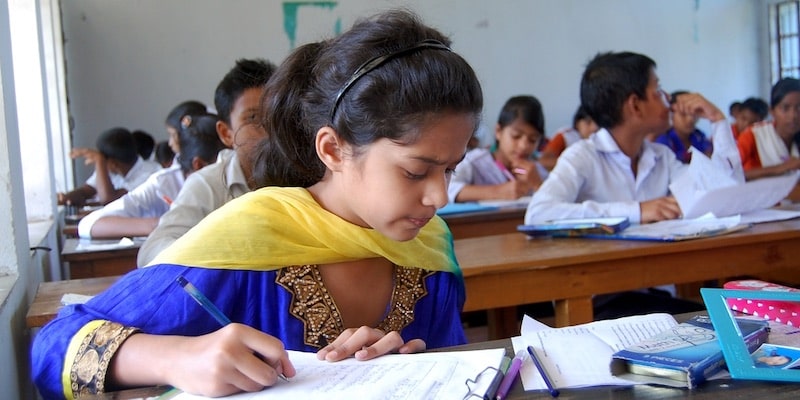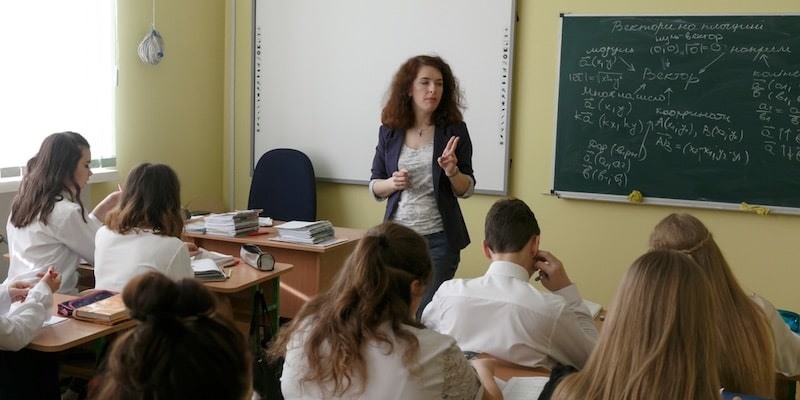We explain what secular or secular education is and what its characteristics are. Also, how is it different from religious education.

What is secular education?
Secular education or secular education It is any educational model that is not based on religious precepts, nor is it associated with any particular church. It is the exact opposite of religious education, in the sense that it does not address spiritual or theological issues, but rather deals with modern, scientific and rationalist training.
This does not mean that secular education teaches young people to be agnostic or atheist, or that it contradicts the moral precepts that a culture comes from its religious tradition. Rather, secular education does not adhere to any religious or mystical perspective, leaving these matters to the privacy of each person and dealing rather with the mundane aspects of existence, that is, the material and sensitive world.
Secular education is typical of modern and secular States, in which church and State occupy different sociopolitical spheres. This type of educational systems is historically due to the philosophical current of liberalism, and Its implementation throughout the 19th century was often the subject of controversy and dilemmas with the conservative sectors of society, who frowned upon the loss of political and social power of the church in their nations.
See also: Secularization
Characteristics of secular education
In general terms, secular education is characterized by:
- Not dealing with matters that concern faith and religious dogma, and lack a mystical or religious perspective regarding the rest of the teaching topics.
- Approach teaching from a modern point of view: democratic, secular, rational and scientific.
- Not be in the hands of any religious group or church, but be regulated by the educational laws of the State, both in private and public institutions.
- Avoid all forms of discrimination ethnic, religious, political, sexual and gender within their academic community.
- Be free and mandatory at its basic level in secular countries. It can also be private.
Differences between secular education and religious education
The main differences between secular education and religious education can be stated as follows:
| secular education | Religious education |
|---|---|
| It is taught in accordance with the educational laws of the State, and therefore its contents are decided by specialized pedagogical institutions and civil society itself. | It is taught according to mystical or religious tradition and sacred texts, often according to the precepts of some specific monastic order. |
| It addresses the contents necessary for worldly life from a secular perspective, without delving into matters of faith. | It addresses the contents necessary for worldly life from a religious perspective, as well as the contents of faith. |
| It does not defend or attack any religion, nor does it actively promote spiritual values. Its moral values are those of civil society. | It promotes and defends the spiritual and moral values of its doctrine, often condemning those belonging to different faiths and cultures. |
| In secular countries it is free and mandatory at its basic level, dependent on public resources. It can also be private. | It is generally private, although it can also be taught under public or semi-public schemes, especially in confessional nations. |
Importance of secular education

Secular education is a vital instrument for the construction and support of the modern State, since In it, the democratic, cosmopolitan and universal values of the modern world are taught to the citizen emphasizing the rational, empirical and scientific view, and leaving matters of faith, the mystical and the supernatural to the free will of each person.
Furthermore, the transition towards secular education implied, in the history of the West, subtracting an important share of power from Christian institutions and hand it over to the State, so that it could follow the design of the majority and not a specific cultural tradition. The latter was especially important in plurinational countries or the result of complex processes of colonization and miscegenation, since it allowed an educational model in which their different identities, heritages and traditions were recognized and validated.
Continue with: Pillars of education
References
- “Secular education” on Wikipedia.
- “The objective of a secular education” by Pedro María Uruñuela at the Youth Institute of the Government of Spain.
- “In defense of secular education” in the Ademys Teaching Association (Argentina).





